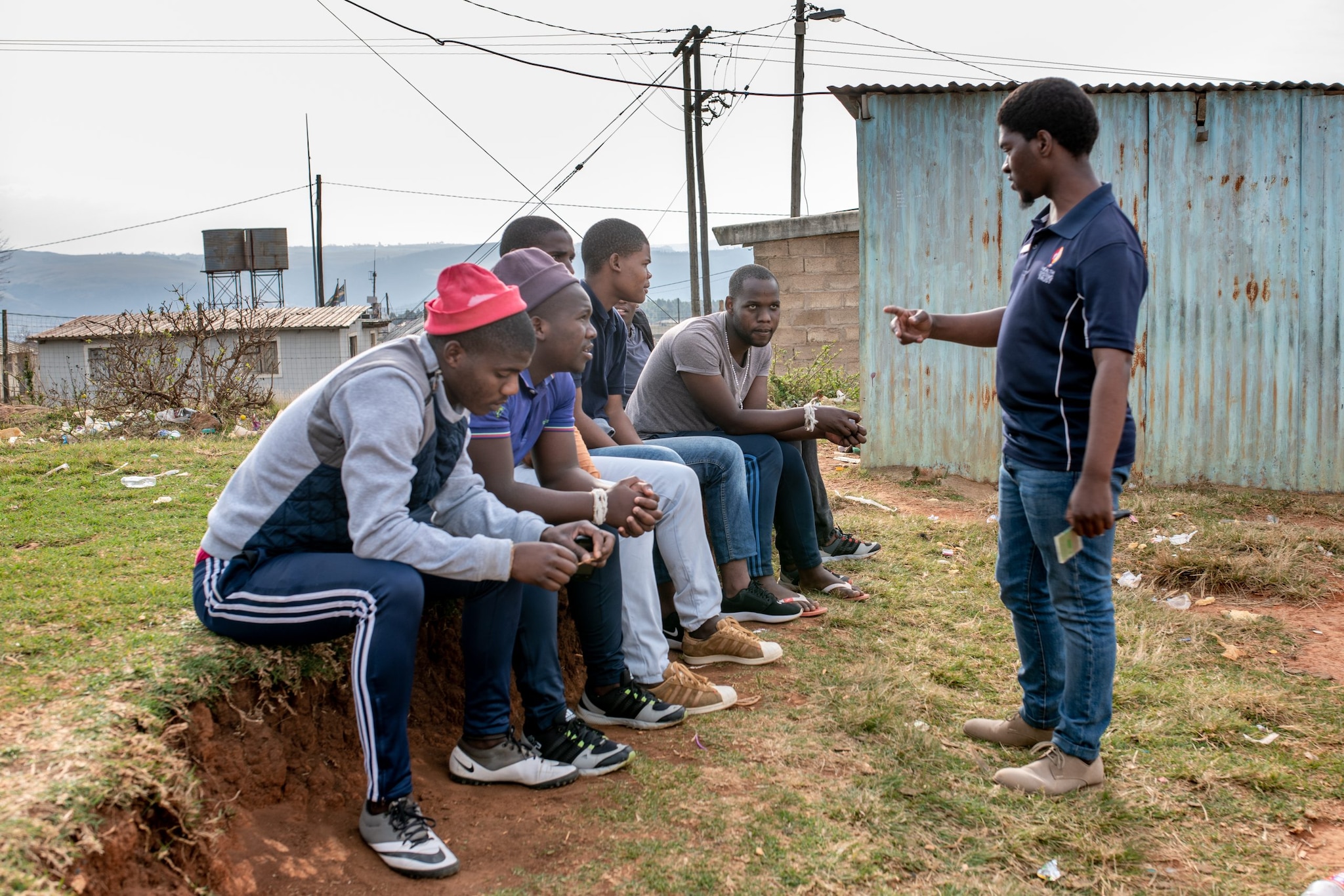At a glance
A community health worker with one of CDC’s partners encourages young men to get tested for HIV at a busy truck stop in South Africa’s uMgungundlovu district.
Nhlanhla's Story

Photo credit: Thom Pierce 2018
It's a late Sunday afternoon in the uMgungundlovu district of KwaZulu-Natal, a region with one of the highest HIV burdens in the country and world. Two healthcare workers from Health Systems Trust, a CDC partner, have come to one of the busiest truck stops in the region to find one of the hardest to reach populations—18- 34-year-old men. Their goal is to encourage these men to take a test that could save their lives. Because these men rarely access the health care system, they are less likely to know their HIV status and just as unlikely to be on HIV treatment if HIV-positive. It's a troubling reality that is fueling the epidemic throughout sub-Saharan Africa. Mobile testing is one of the ways CDC and partners are tackling this dilemma—by taking the test to men, where and when they spend time together.
On this particular day, Nhlanhla, one of the workers, approaches six young men to ask if they would agree to be tested. Four decline, but two agree. Together they cross the busy intersection to the van that houses a full HIV testing clinic. Just 20 minutes after a quick finger prick, they will know their status. If negative, the staff will arm them with information they need to stay that way. If positive, they will be escorted to the clinic across the street and started immediately on treatment to keep them healthy. They will also be given the tools to help them stay on treatment which, in turn, will prevent them from transmitting the virus to someone else. "This is how we end an epidemic," says Nhlanhla, "one person at a time."
